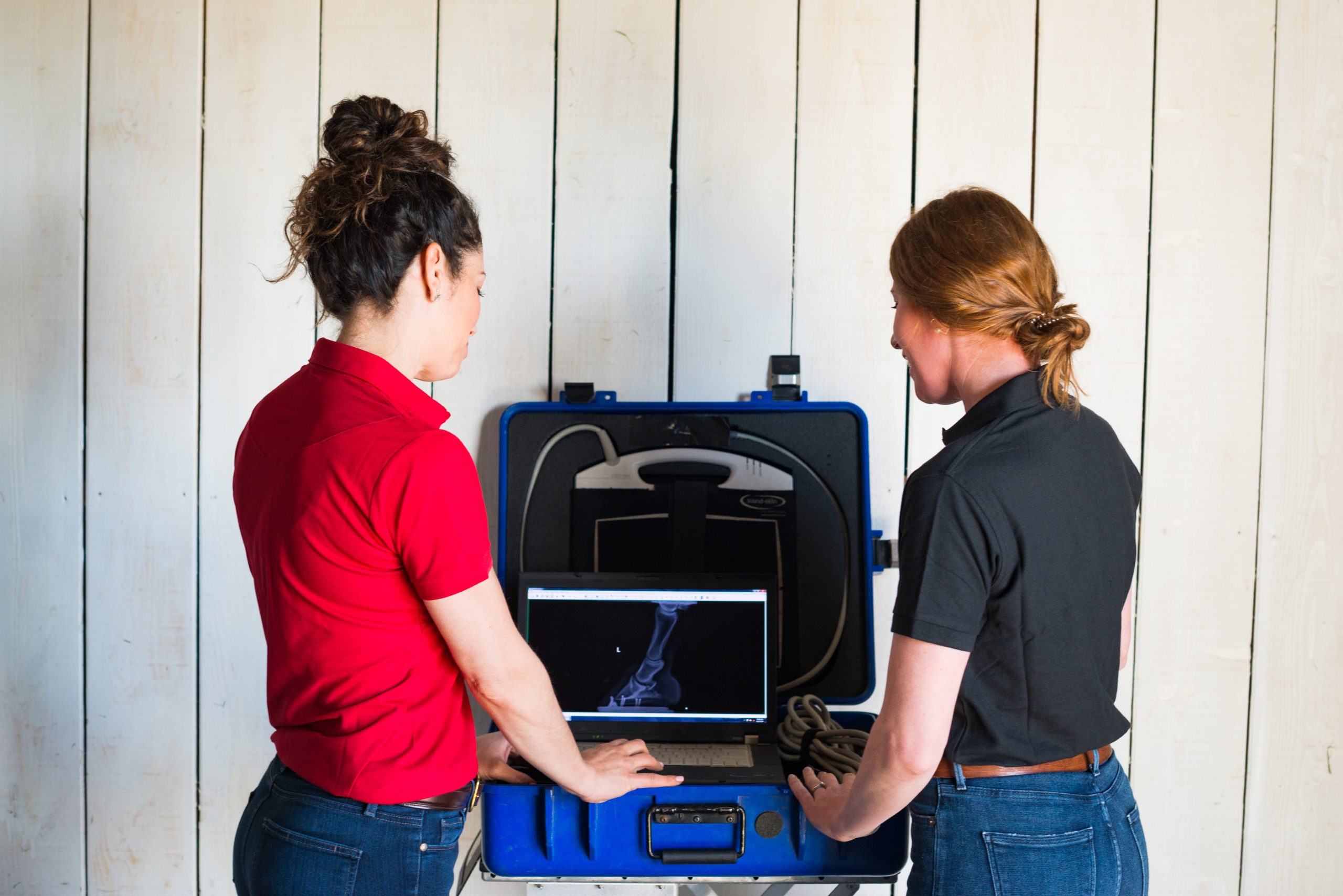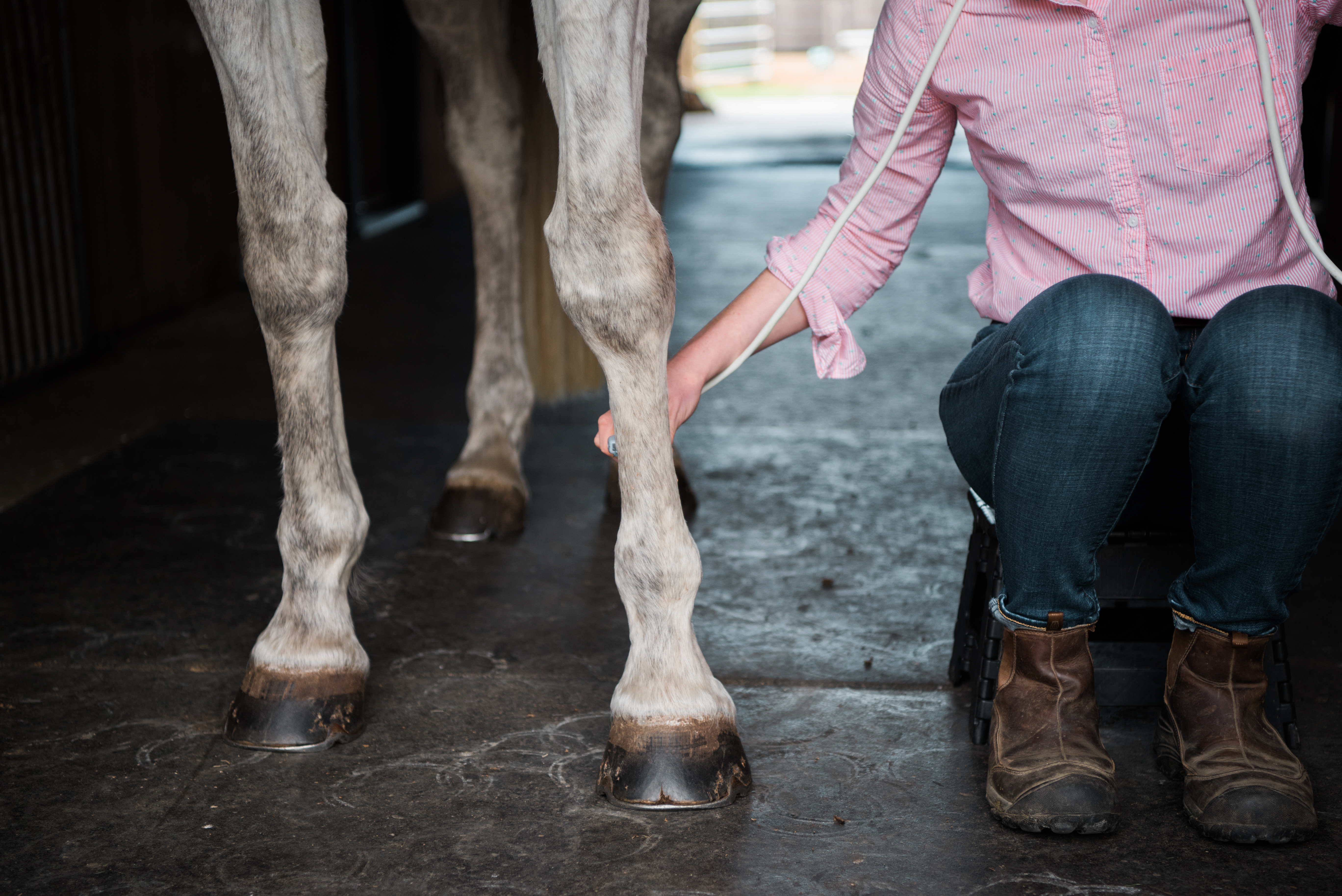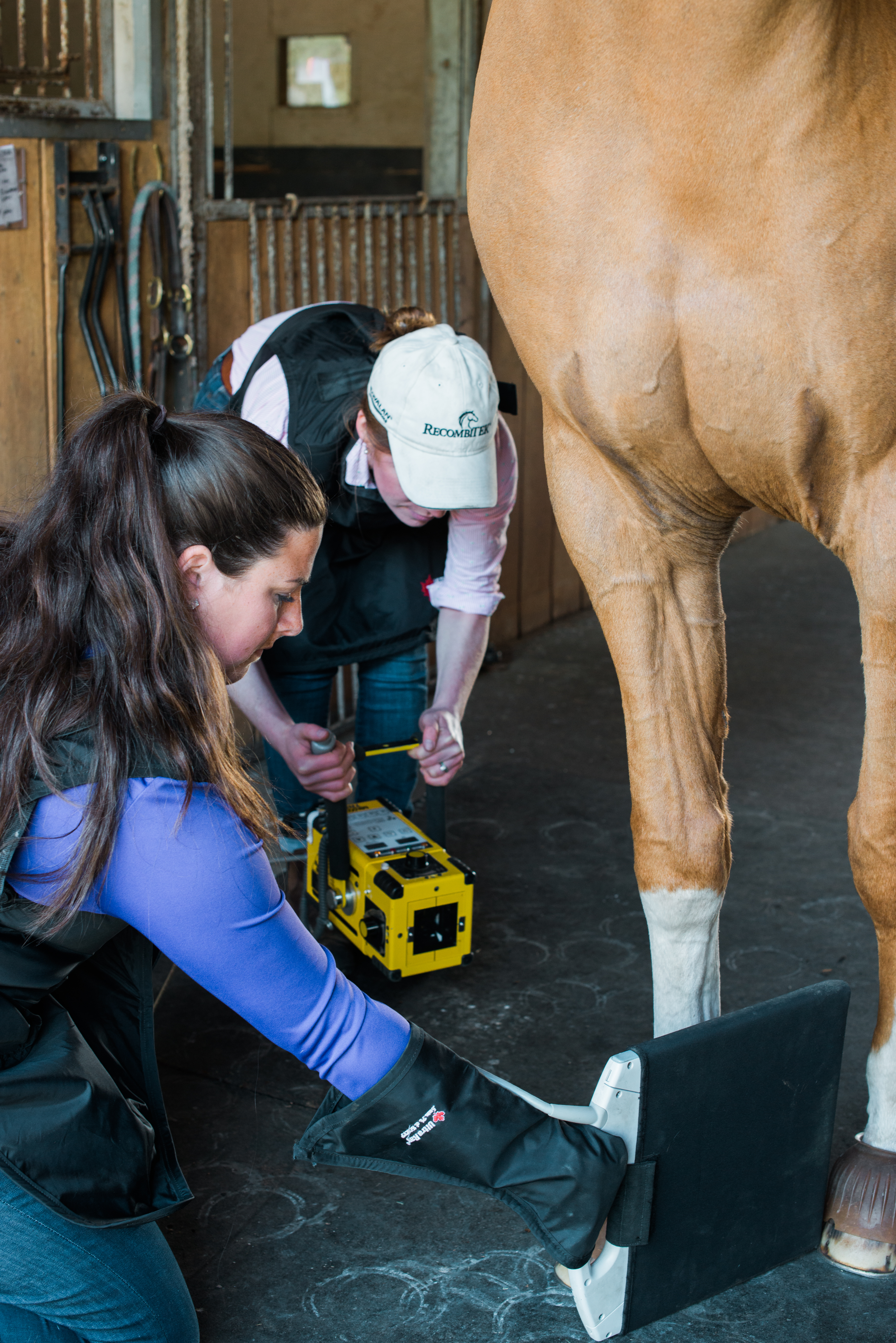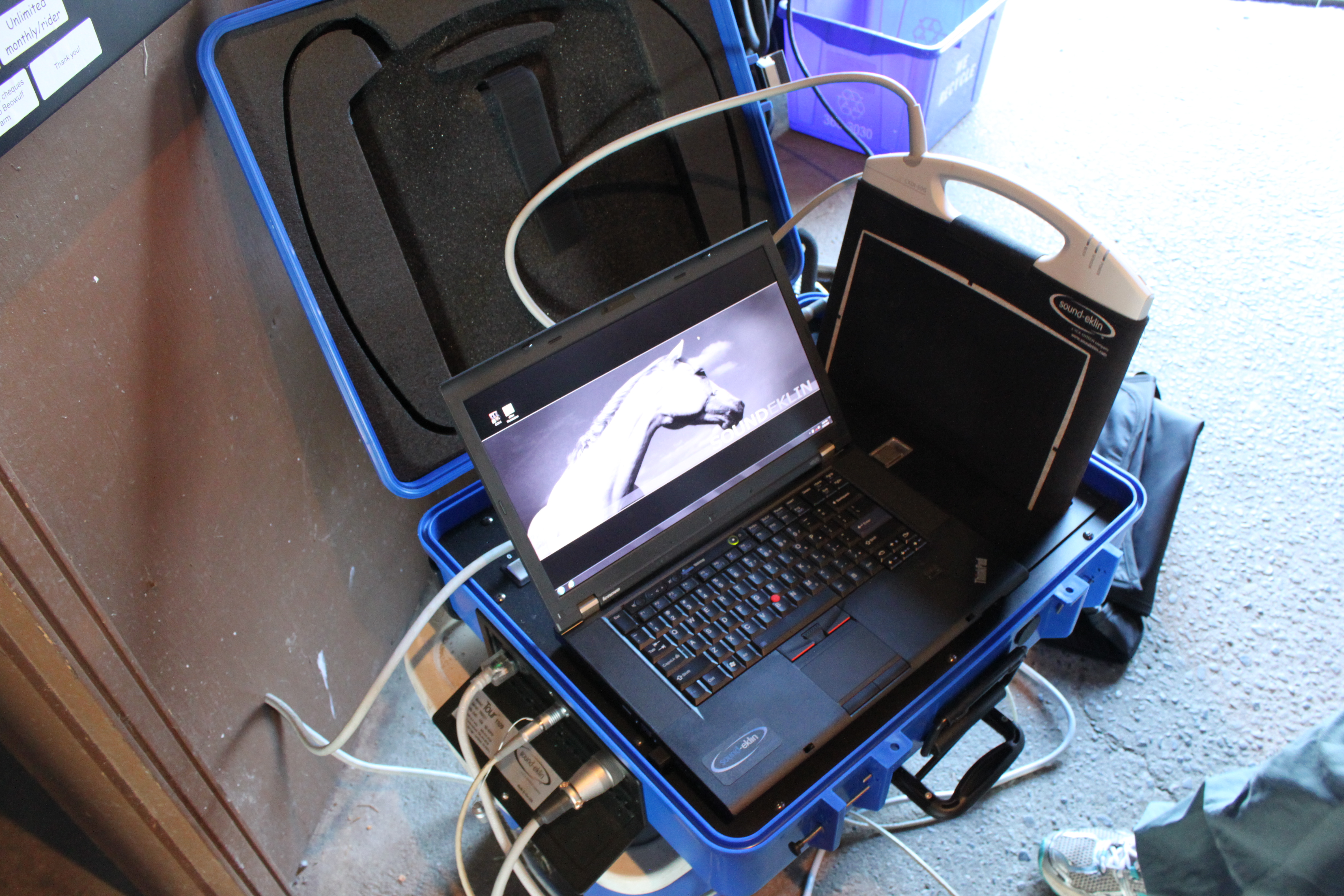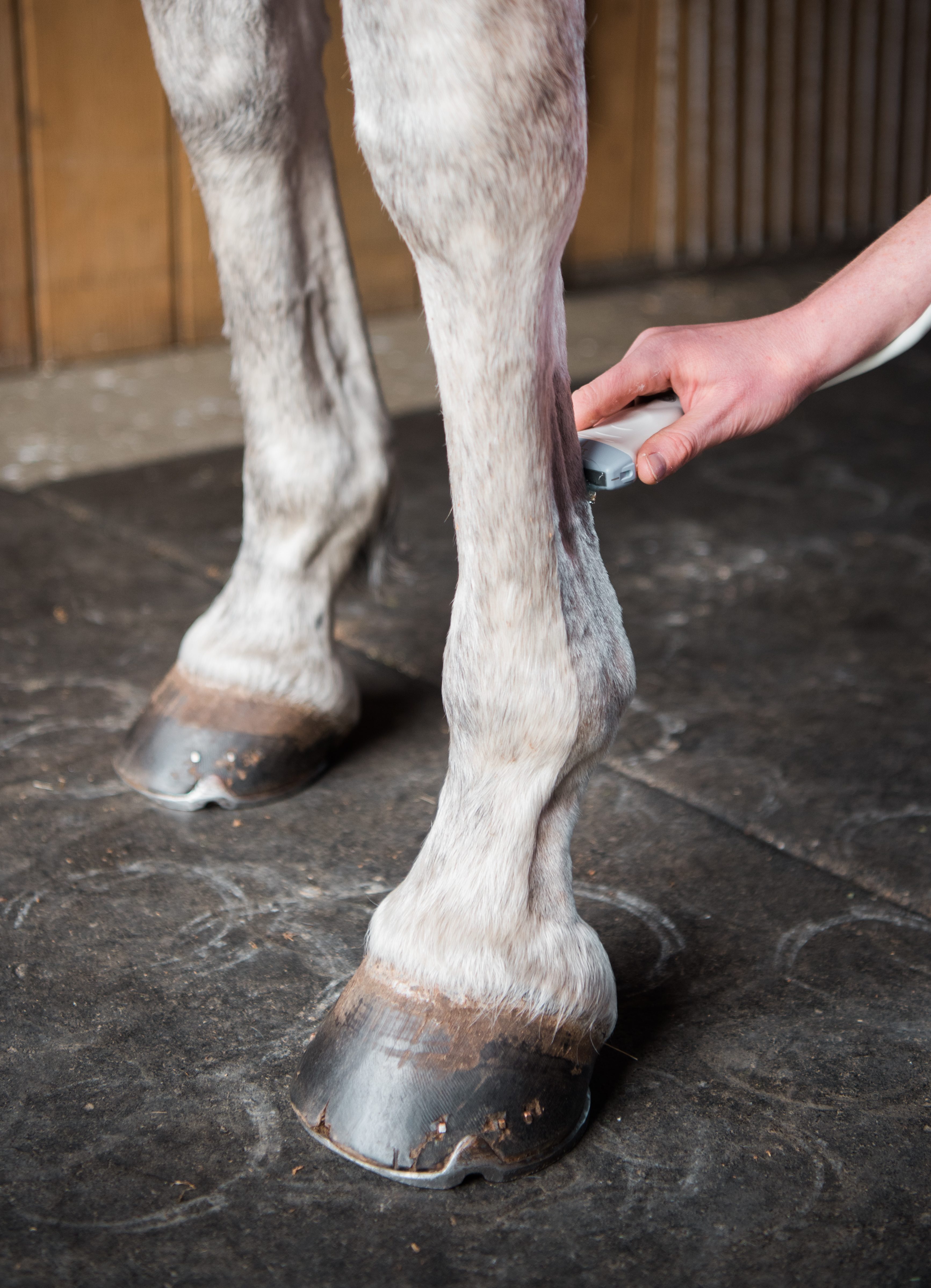In recent years, technology has transformed what is possible in human and equine medicine. With its unparalleled commitment to standard of care, Eden & Plaxton Equine offers the following cutting edge technologies to our patients.
Digital Radiology
We offer state of the art digital radiography for on farm use. Digital radiography allows for instant viewing of radiographs, greater detail of areas radiographed, and retakes or ancillary views instantly, if necessary. Our unit has the ability to radiograph all areas of the lower extremities, as well as the head, neck, wither, and stifle. Images are available instantly in digital format that can be emailed to owners and referrals.
Diagnostic Ultrasonography
Diagnostic ultrasonography is our most useful tool for the non-invasive evaluation of soft tissue structures. We have a digital ultrasound with superior resolution and imaging for soft tissue structures such as tendons and ligaments. Ultrasonography is vitally important in the evaluation and treatment of musculoskeletal injury, lameness, routine reproductive evaluation, emergency colic cases, cardiac disease, respiratory disease, and an ever-expanding number of medical applications.
Gastroscopy
Gastroscopy is the only reliable method of diagnosing gastric ulcers. Gastric ulcers are a common condition in horses who are subjected to stresses such as competition, transport, and recovery from a disease or injury. This process is performed on the standing and sedated horse and is well tolerated by the patient. Gastroscopy is performed locally on farm through referral.
Endoscopy
A videoendoscope is used to evaluate areas such as the respiratory tract, urethra, bladder, and uterus. This process is performed on the standing and sedated horse and is well tolerated by the patient. Endoscopy is performed on farm through referral.
MRI
Standing MRI is performed via referral to the lower mainland at Paton and Martin Veterinary Services. Higher frequency MRI is available through Washington State University Veterinary Hospital in Pullman, WA.
CT
Computed Tomography (CT) is where an X-ray tube moves around the region of interest and continuously projects a thin fan of X-rays through that region. CT imaging is offered through referral at Washington State University Veterinary Hospital in Pullman, WA.
Nuclear Scintigraphy
Commonly known as a bone scan, nuclear scintigraphy has the sensitivity to diagnose injuries that cannot be detected by x-rays. Examples included stress fractures, pelvic injuries, spinal injuries, chronic ligament injuries, and arthritis. This modality detects bone inflammation through the use of a radioactive labeled nucleotide that is injected into the bloodstream. A gamma camera is then used to image various areas of the body, and an image is digitally generated showing where there is abnormal active bone inflammation.
Nuclear Scintigraphy is very useful for evaluation of injuries or lameness where:
- The diagnosis has not been clear with other imaging methods
- The source of lameness cannot be localized because it is high up in the leg
- There is subtle lameness or reduced performance that cannot be localized to any specific location
- There may be multiple sources of pain or injury
- Eden & Plaxton Equine can arrange for a Nuclear Scintigraphy appointment through the following clinics: Moore Equine in Alberta, Rainland Farm Equine Clinic in Woodinville, WA, or at Washington State University Veterinary School in Pullman, WA.


